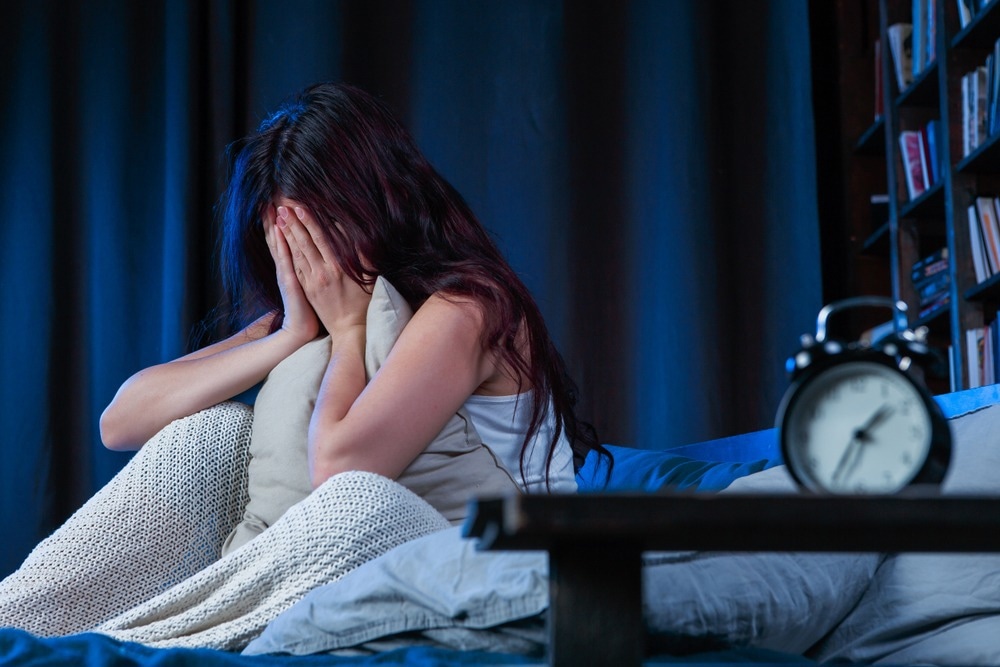Study suggests sleep disturbance is associated with dyspnoea, anxiety, and muscle weakness following COVID-19 hospitalization
In a recent study posted to the medRxiv* preprint server, a team of researchers used a multi-modal approach to examine the types, prevalence, and relevance of sleep disturbance in individuals hospitalized with coronavirus disease 2019 (COVID-19) and determine associations between dyspnea and sleep disturbance.

Background
An emerging long-term consequence of COVID-19 post-hospitalization is long COVID comprising persistent and debilitating symptoms such as fatigue, headaches, shortness of breath, cognitive impairments, and various other recurrent symptoms affecting the cardiovascular, pulmonary, respiratory, digestive, and nervous systems.
Dyspnea has been widely reported by numerous studies that evaluated long COVID patients. However, since dyspnea could be related to several factors, such as mental health, as well as neurological, cardiovascular, and respiratory dysfunction, identifying the specific cause has proven to be difficult.
Another commonly reported long COVID symptom is sleep disturbance, which can also affect mental health and various organ systems. Irrespective of the disease, sleep disturbance has been observed after hospitalization in several studies. Sleep disturbance is also associated with muscle weakness, anxiety, and, in some cases, chronic respiratory disease. However, acute sleep disturbance after hospitalization due to COVID-19 and correlations between sleep disturbance and dyspnea remain unexplored.
About the study
In the present study, the team recruited adults aged 18 or above who had been hospitalized with a polymerase chain reaction (PCR) test-based or clinically confirmed diagnosis of COVID-19 and had been discharged between March 2020 and October 2021.
Two methods were used to assess sleep disturbance approximately five months after hospitalization subjectively; the Pittsburgh sleep quality index (PSQI) questionnaire, which assessed seven components of sleep quality, and the numerical rating scale (NRS), which asked patients to grade their sleep quality on a scale of zero to 10, with zero being the lowest quality of sleep.
Sleep quality was also measured using an accelerometer, which the participants had to wear on their wrists for 14 days, approximately seven months after discharge from the hospital. The data from the accelerometer were used to analyze sleep duration, regularity, and efficiency.
Other symptoms post-hospitalization with COVID-19 were assessed during the follow-up approximately five months post-discharge. Furthermore, data from the United Kingdom Biobank cohort was used for pre-pandemic comparison.
Results
The results indicated that disturbed sleep was prevalent among COVID-19 patients who had been hospitalized and was a persistent symptom for almost a year post-discharge. Furthermore, the multi-modal assessment of sleep disturbance and other post-hospitalization symptoms revealed that poor sleep quality and sleep irregularity were associated with decreased lung function and dyspnea. Of the 714 participants in the study, 64% reported poor sleep, and 56% described a deterioration of sleep quality in the 12 months following hospitalization.
The three complementary methods used to assess sleep quality revealed similar results. The two subjective assessment methods, PSQI and NRS, indicated that poor sleep quality post-hospitalization with COVID-19 was reported by 64% and 53.2% of the participants, respectively. Compared to matched controls, sleep regularity and efficiency were lower by 25% and 3.3%, respectively, and sleep duration was longer by an average of 56 minutes among the patients hospitalized for COVID-19.
Participants whose PSQI and NRS scores indicated poor sleep quality also scored higher on the questionnaire examining dyspnea, and the correlations remained consistent despite adjusting for age, sex, comorbidities, the severity of COVID-19, body mass index, and duration of hospitalization. In the accelerometer-based assessment, participants with low sleep regularity had a higher dyspnea score, but sleep efficiency and duration were not associated with dyspnea.
Furthermore, participants with PSQI and NRS scores indicating poor sleep quality showed a lower predicted forced expiratory volume per second (FEV1) and forced vital capacity (FVC). Similarly, participants with low sleep regularity also showed low FEV1 and FVC.
Additionally, participants with poor sleep quality PSQI and NRS scores also exhibited deteriorated muscle function and were more likely to experience mild to severe anxiety. Anxiety and muscle weakness also mediated the influence of poor sleep on dyspnea by 41.6% and 39.5%, respectively.
Conclusions
Overall, the results indicated that disturbed sleep post-hospitalization in COVID-19 patients is associated with various long-lasting symptoms such as dyspnea, muscle weakness, and anxiety. Sleep disturbance could be the driver of many of the long COVID symptoms, and targeting sleep quality could alleviate some of these persistent symptoms. The findings of the study could also extend to other diseases that require hospitalization.
*Important notice
medRxiv publishes preliminary scientific reports that are not peer-reviewed and, therefore, should not be regarded as conclusive, guide clinical practice/health-related behavior, or treated as established information.
- Jackson, C. et al. (2022) "The effects of sleep disturbance on dyspnoea and impaired lung function following COVID-19 hospitalisation: a prospective multi-centre cohort study". medRxiv. doi: 10.1101/2022.12.13.22283391. https://www.medrxiv.org/content/10.1101/2022.12.13.22283391v1
Posted in: Medical Science News | Medical Research News | Disease/Infection News
Tags: Anxiety, Body Mass Index, Chronic, Coronavirus, Coronavirus Disease COVID-19, covid-19, Dyspnea, Fatigue, Hospital, Mental Health, Muscle, Pandemic, Polymerase, Polymerase Chain Reaction, Respiratory, Respiratory Disease, Sleep
.jpg)
Written by
Dr. Chinta Sidharthan
Chinta Sidharthan is a writer based in Bangalore, India. Her academic background is in evolutionary biology and genetics, and she has extensive experience in scientific research, teaching, science writing, and herpetology. Chinta holds a Ph.D. in evolutionary biology from the Indian Institute of Science and is passionate about science education, writing, animals, wildlife, and conservation. For her doctoral research, she explored the origins and diversification of blindsnakes in India, as a part of which she did extensive fieldwork in the jungles of southern India. She has received the Canadian Governor General’s bronze medal and Bangalore University gold medal for academic excellence and published her research in high-impact journals.
Source: Read Full Article


